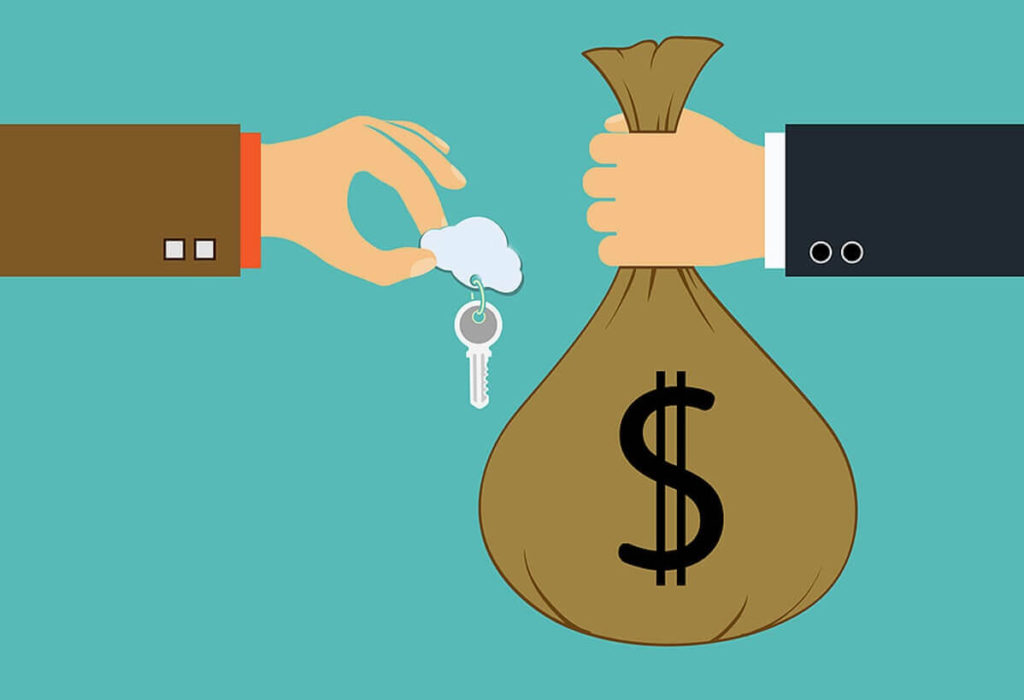Stop Foreclosure
What Is a Short Sale?

What does a short sale mean in real estate?
The term “short sale” has nothing to do with the amount of time needed to complete a sale; instead, it refers to the purchase price being less than what is owed on a mortgage.
The phrase short sale refers to selling a home under circumstances where a homeowner undergoing financial hardship sells their property for an amount less than what is due on their mortgage. The person who buys the property is usually another entity instead of the bank, and all of the money that comes from the sale will be given to the lender.
Below, we’ll take a look at the short sale process, the benefits and drawbacks, how to persuade the lender to agree to a sale and more.
Why consider a short sale?
Sometimes, the homeowner ends up owing more on their home than what the market will pay, which is referred to as being underwater. This strips the ability to sell the home and pay off the existing mortgage. A homeowner whose home is underwater needs to get permission from the lender to sell the house for an amount that falls short of what is owed. This is known as a short sale.
A short sale is usually both the lender and the seller trying to avoid foreclosure. Short sale transactions may also be initiated if a buyer is eager to get a home by making a below-mortgage offer to the person who is selling.
NEED TO STOP FORECLOSURE?
LET'S GET STARTED:
When does a home go into short sale?
A home will go into short sale once the homeowner has realized they are no longer able to make their payments on their mortgage. Instead of waiting for the bank to process a foreclosure, the homeowner may get started on the short sale process through an application to a lender or working with a professional short sale negotiator like us, contact FastCashAnyHome investor team.
A lender is looks at a few things whether or not to approve a short sale. Two important factors that the lender takes into consideration.
- The seller has to be able to prove their financial hardship by showing they don’t have assets or income.
- The home needs to be worth less than what is owed on it.
Short sales and foreclosures were a common occurrence during the recession in 2008. As the economy bounced back and the housing market did as well, short sales are not as common, though they are still an option.
FAQs About Foreclosures
A nonjudicial foreclosure can take place without the involvement of the court. The deed of trust that holds the loan comes with a clause known as the power of sale. The power of sale allows a trustee to sell the property to get back some of the lender’s loss if the homeowners defaulted on the loan. Unless you make efforts to prevent it, you could have to forfeit your home within only six months of missing the first payment.
Foreclosure Avoidance Assessment
After 30 days from your last mortgage payment, it is considered past due. At this point, the foreclosure process usually begins. The first step is the lender getting in touch with you to figure out if it’s possible to get the payments back on track. Within the next 14 days, you can request another assessment meeting.
Notice of Default/Sale
The lender can put forth a notice of loan defaulting 30 days after this assessment. By making a record of it, it becomes a public record. It is the official indicator that the lender is going through with a foreclosure on your property. You’ll get a copy of this through certified mail approximately 10 days after it has been filed. From there, you will have 90 additional days to rectify the problem and fix the default.
If you can’t come to an agreement with the lender within 90 days of the recording date, the lender can then record a notice of sale, which is filed 90 days after the Notice of Default; you will receive this notice by certified mail. The lender will simultaneously publish the notice on the property and in the newspaper. After 21 days following the publication, the auction and sale can take place. This will warn the homeowner that the home will be sold at auction. The mortgage can be reinstated as late as five days leading up to the auction of the home.
Auction
The lender will make a bid at the auction to try and recoup the remaining balance on the mortgage as well as any foreclosure fees. If there are no other bids on the property, the lender will be able to seize the property. Another buyer could then make a higher bid in order to buy the property for themselves. No matter what, the home will be sold and you will no longer own it. The bidder who wins the property will receive the deed to the house.
Vacating the Home
The new owner of the property can’t simply lock you out of the home. You will still be able to live in the home as a tenant. The new homeowner has to follow through with a legal eviction process, which can take up to an average of 30 days. After the judge has issued the unlawful detainer, the first homeowner has five days to vacate the house. If they do not vacate after those days have passed, the sheriff can put forth the lock-out.
In states where foreclosures aren’t handled by courts, homeowners can keep ownership of their property and list it for sale until the home has been sold at a foreclosure sale or trustee sale.
Listing a Home During Foreclosure
A homeowner can keep the title of their home up until it is sold or until the title goes back to the mortgage lender following a foreclosure sale in which no one purchased the home. Listing a home for sale between the foreclosure sale and the filing of the Notice of Default may help stop a foreclosure if the sale of the home occurs before the mortgage lender agrees to put off the foreclosure sale or before the foreclosure sale date. Legal proceedings, including bankruptcy, may limit the right of the homeowner to sell and list the home.
Selling a Property in Foreclosure
Homeowners who are facing foreclosure will ideally have talked to their mortgage lender about foreclosure alternatives. If the notice of default has been filed, homeowners may only have a couple of months to sell the home before the lender completes the foreclosure and obtains the title to the home to do what they like with the home. It is a good idea to let the mortgage lender know the property has been put up for sale. While this might not put off the foreclosure, it will tell the lender that the mortgage delinquency may be resolved if the home is sold.
Working with a Real Estate Agent or Broker
Selling a home in foreclosure creates a unique situation that doesn’t have room for delays. It is important to hire a real estate professional that specializes in distressed properties to ensure that there are no mistakes made. Real estate professionals have a thorough grasp of the timeline and the steps involved in a foreclosure. They can also efficiently coordinate the efforts between the lender, buyer and seller in order to get the sale through as quickly as possible.
Dodge Foreclosure with a Short Sale
In a few cases, the home that is listed will end up being less than the amount due on the mortgage. In this situation, the mortgage lender will have to decide whether or not they want to approve a short sale. A homeowner has to get in touch with their mortgage lender right away if the home that is in foreclosure is worth less money than the debt on the mortgage. The lender has to agree to the short sale and to accept whatever net sale proceeds of the purchased property as total satisfaction of the debt on the mortgage.
When the offer for purchase is received, the mortgage lender will look at the financial information of the homeowners and could also need to have the short sale approved by an investor or mortgage insurer. Be sure to follow up with the lender once a week. If the date for the property’s foreclosure sale is already set, try and get the lender to put it off until the short sale can be finished.
It is illegal for your lender to sell your home at an auction before the foreclosure process has been completed.
Payment Demands
Your lender may give you many notices requesting payment on your loan; however, these letters do not serve as foreclosure notices. The letter may instead talk about the risks of your failure to pay, which includes selling your property at an auction, but it is not a legitimate, legal notice of foreclosure.
Foreclosure Avoidance
The first step that the lender takes to begin the process of foreclosure is to put forth a Foreclosure Avoidance Assessment. In this meeting, the lender will talk about the homeowner’s options to get right with the default on the loan. The lender might also bring in alternatives like a short sale, mortgage modification, payment arrangements or a deed-in-lieu. The lender is unable to initiate the foreclosure process until 30 days after this assessment.
Even with new foreclosure laws becoming more robust in their protection of homeowners who are facing foreclosure, some homeowners still stand to lose their homes in these proceedings. California laws let the trustee’s sale be postponed or rescinded only in certain circumstances and before the property is sold.
Pre-Sale Rescission
After the sale of the foreclosure has been scheduled but has not yet taken place, the sale can be rescinded or put off for various reasons. Sales could also be put off by a lender to ensure compliance with the state laws or to get together more information. A lender could decide to rescind a foreclosure sale should the borrower request to have the loan agreements reinstated. Then, they can make the payments needed to make the balance on the loan current. This has to be completed more than five days leading up to the sale date that is scheduled.
Post-Sale Rescission
At the sale, the foreclosed property is auctioned off to the person that bids the highest. If there are no bids placed, ownership is given back to the mortgage lender. In both instances, the trustee’s deed for the house is prepared and then recorded. All of these sales are considered to be final.
Legal Avenues
Foreclosure sales could be postponed due to certain legal avenues. If the homeowner files for bankruptcy, this will stop the sale automatically until the bankruptcy judge can rule on the validity of the debt on the home loan and decide whether or not the foreclosure sale should move forward. Homeowners also reserve the right to petition their local superior court for a restraining order that could temporarily stop the sale. Once they have petitioned the court, the homeowner will need to make their case to the court. This could result in a preliminary injunction against the sale. In both instances, these avenues do not always promise the homeowner anything but a break from the process.
Foreclosure proceedings can look different state by state. The local government can start a hearing in order to approve any potential foreclosure. Attending the foreclosure is optional, and it depends on what you personally want. If you are okay with vacating the foreclosed home without protesting, then you don’t have to make an appearance. If you would rather dispute the facts and defend your home and yourself to try and stop foreclosure, you will need to show up in order to do so.
Non-Judicial Foreclosures
These foreclosures don’t give borrowers the same kind of flexibility as a judicial foreclosure. No judges or courts will be needed to approve the foreclosure. The lender will instead send a notice of default to the homeowner. In this letter, a grace period is included. In this, borrowers are afforded a certain length of time that they can use to pay the amount that they owe. Should the borrower neglect to pay the amount, then the lender can send out the notice of sale. In these non-judicial foreclosures, there is no hearing in a courtroom to attend. Any disputes or arguments to be made have to be settled with your lender or bank.
Judicial Foreclosures
This type of foreclosure, by contrast, requires that you have a courtroom hearing before beginning the foreclosure. When the lender is looking to foreclose, they have to file a complaint with the court. After the court receives the complaint, they will then notify the homeowner and schedule a court date. This type of foreclosure gives the homeowner a chance to dispute any facts and try to defend their home from foreclosure. If there is no dispute to be made, the judge can grant the foreclosure and indicate an amount to reimburse the lender. The property is then taken and put up for sale in an auction.
Reasons to Attend a Hearing
Borrowers have the chance to defend themselves, first and foremost. If the lender is in violation of any law of contract, or if you believe your foreclosure case should be an exemption from them, you can say so. You may be allowed to pay the balance that is owed to avoid the foreclosure, though the lender will want you to pay the courtroom fees as well. Attending may slow down the foreclosure process, buying you a little more time.
Reasons to Not Attend a Hearing
If you don’t show up, you will most definitely lose the case. This will result in the lender obtaining the approval for the foreclosure. Attendance isn’t mandatory, so you won’t be prosecuted or fined if you don’t show up. If you just want to get it all over with, then you can speed it along by not attending the hearing. You can also avoid paying expensive attorney fees and court costs by choosing not to show up. Ultimately, the choice is yours, and you have a legal right to choose to attend or to stay home.
Process of Short Selling

No matter how it starts, a short sale usually requires four things before anything else:
- The seller must have a hardship to be considered eligible for short sale.
- A reasonable offer that is in agreement with the fair market value of the home is needed.
- The lender that holds the title to the property has to agree to the short sale.
- The seller and the buyer can be on the same page, but if the lender doesn’t agree to the short sale, it doesn’t matter. Usually, lenders will entertain other efforts to handle the debt of the homeowner before considering a short sale.
- The qualified buyer must not be related to or affiliated with the seller. They must also have financing ready.
Short sale Steps:
- Step 1: The homeowner proves that they are eligible for a short sale by submitting any required documentation and answering financial questions posed by the lender. This includes a hardship letter that will detail why the short sale is needed.
- Step 2: The lender will pay for an appraisal to determine the fair market value. Then, they will give the seller a recommended list price as well as an expiration date.
- Step 3: The real estate agent of the homeowner or their broker will put the property up for sale. Many lenders will require the seller to have an agent representing them even if the owner is given a direct offer.
- Step 4: When an offer on the property is received, the homeowner’s agent will submit the offer to the lender. The offer will include the qualifications of the buyer in terms of financing, as well as a deposit, the broker’s description of the current market and the purchase contract.
- Step 5: The lender will approve the offer or make a counteroffer.
- Step 6: After the agreement has been reached, both the seller and buyer have to finish the sale under the terms that the lender lays out.
- Step 7: After closing, the seller will be released from all or some of their loan responsibilities.
Most lenders don’t want to think about a short sale without having an offer waiting. If some other mortgages or liens have been taken out on the home, the lender will want lien releases.
Pros of Short Sales
Just like with anything else, there are pros and cons of short sales, the advantages include:
- The lender will avoid having to sell the property, meaning they won’t have to risk any further concessions on the home price, which a foreclosure auction or post-sale auction might bring about.
- Short sale saves time and money ahead of foreclosures.
- Short sale gives the lender a good reputation if they negotiate with the homeowner instead of just immediately foreclosing.
- The seller can get financing approval on another home more swiftly than they would after a foreclosure. The credit rating recovery period is also faster than it is for foreclosure.
- The seller can avoid foreclosure entirely while being released from a portion of or all of the mortgage obligation.
- The seller can stay in the home until the sale is complete.
- Payment to take care of relocation expenses can sometimes be offered as a portion of the closing package offered by the lender.
- Broker’s fees and closing costs are usually paid by the lender.
- The home is usually in better condition than homes that are bought in foreclosure
- The price of the home may be below the market value.
- Broker’s fees and closing costs will usually be paid by someone else.
- Inspections and title searches are both usually allowed.
Cons of Short Sale
A short sale often has a few disadvantages, the first being there are more parties involved in the process than in a usual sale, which could make the process both lengthy and complicated. In a usual sale, price negotiations take place between the buyer and seller alone. With a short sale, the seller’s lender won’t take just the word of a buyer or seller on the worth of the property; they will instead get an appraisal to find the fair market value of the home in an attempt to negotiate the price to minimize their loss.
If there are any liens or mortgages on the home, the lien holders will all need to agree to the sale. The primacy lender will be entitled to be paid first, but the lien holders would also want their debt paid as well and will therefore want to negotiate to take some of the proceeds. If the main lender doesn’t want to agree to a portion being given to liens, they may refuse the sale. This could allow the foreclosure to proceed.
From beginning to end, there are many issues that a buyer may have to deal with, and these could affect all of the parties involved. The buyer’s pre-approval or their financing has the chance of expiring while everyone waits to hear from the lender. If the condition of the property is a big problem, the lender could not agree to it. It could be challenging to work out the usual timeline of closing with the small period of time required by the seller’s bank.
A short sale is usually preferred to foreclosure, but it is not the solution to all of a struggling homeowner’s problems. Besides credit implications and tax liability, if the homeowner has to pay the difference between the mortgage and the sale price, that can add to the financial difficulty. Because of this, the Consumer Financial Protection Bureau will recommend getting a waiver from the lender in writing for the deficiency.
While the short sale has some advantages for a buyer, none of them are only accessible through a short sale. Because short sales are considered a last resort option to avoid foreclosure, this is something that can only take place if the parties in the agreement have established that the short sale is the best alternative. This leaves open many ways that a deal can end up falling through, which may have nothing to do with the buyer. This includes:
- If the lender wants the seller to make up the difference between the purchase price and what’s owed on the mortgage, the seller may not want to do this.
- The lender could reject the qualifications given by the seller for the sale.
- A foreclosure deadline could get in the way of a pending sale. This is also true of a seller who is filing for bankruptcy.
- If the seller’s finances improve, they may decide not to follow through with the sale.
Short Sale vs. Foreclosure:
How Does a Short Sale Work in Your Favor?
Foreclosures and short sales are two options financially available to homeowners that are falling behind on their payments. Foreclosures allow lenders to take the home after the borrower has stopped making payments and are often the final option for a lender. Foreclosures, unlike short sales, are initiated only by lenders. The lender will force the sale of the house with the idea of getting back the money it is losing from the borrower.
After the lender has the home, they will get an appraisal and try to sell it off. Foreclosures don’t usually take as long as it does to work through a short sale, since the lender hopes to liquidate it quickly. Foreclosed homes may also be auctioned off. Though foreclosure allows you to walk away from the issue at the risk of ruining your credit, going through a short sale requires a lot of work. Still, the payoff may be worth it to many homeowners facing foreclosure.
In a short sale, the process is initiated by the homeowner. The owner shows the lender how they are struggling to make the payments through documentation that shows records of issues such as a divorce decree, loss of employment or their bank statements. Once the lender decides to move forward, the homeowner becomes responsible for finding a buyer. During a foreclosure, the lender will start the process and practically seize the home once the owner stops making payments, and this tends to take a lot longer than a foreclosure.

Special Considerations in Short Sales
While a short sale can harm someone’s credit score less than a foreclosure, it will still be a negative shadow on your credit. Any kind of property sale that is not paid as agreed upon will also leave scuff marks on your credit score. Because of this, foreclosures, short sales and deeds in lieu of foreclosure will all be detrimental to your credit.
Short sales won’t always take away the rest of the mortgage balance, however, due to the fact that there are two parts to any mortgage. The first part is the lien taken against the property that is used to get the loan in the first place. The lien will spare the lender steep losses if the borrower is no longer able to pay the loan. It also gives the lender the right to put the property up for sale to get repayment.
The second part comes in the form of the promise to repay the mortgage. Lenders are able to enforce this either through the collection of the deficiency or through a new note. Lenders have to approve the short sale, either way, leaving borrowers at their mercy.
How To Get a Lender To Approve a Short Sale?
If you want a reluctant lender to agree to a short sale, there are a few things you can keep in mind. Some tips to consider are as follows:
- Talk to the lender as soon as you believe there may be a need for a short sale.
- Ensure your sale application is thorough and complete with all of the necessary documentation.
- Give your realtor permission to directly negotiate with the lender.
- Be sure the offer made by the buyer is presented in the best light. Be honest about the offers and the interactions made with the buyer.
- Get together a financing plan before making an offer.
- Get authorization from your realtor to talk to the lender and stay in the loop.
- Submit a reasonable offer and an earnest deposit to let the lender know you’re serious about the purchase.
- Be quick in your responses to the lender and the realtor. You should also be understanding of the seller in that this might be an emotionally trying decision for them and may not be their first-choice option for selling their home.

Short Sale Strategies for Both Investors and Buyers
Short sales are also able to bring great opportunities for buyers to get into a house at a low price. Whether you work with a company like FastCashAnyHome to buy a short sale home or choose to work through the process on your own, there are ways to make the process simpler. Below, you’ll find a few tips to assist you in making wise decisions when you are thinking about purchasing a short sale home.
Learn How To Locate Short Sale Homes
Many short sale homes will be listed on real estate websites by agents. Some of the listings might not be advertised for what they are—short sales; so you may need to seek out clues in the listing to find them. Some clues include needing bank approval before moving forward or leaving room for the bank to respond in their own time. Having an experienced real estate investor or agent may make all the difference in the world, both when it comes to closing and finding short sale homes. Some agents may even have a certification for it, making the process even smoother for you as a seller.
Those who have this certification have undergone special training specifically in foreclosures and short sales, including how to qualify sellers for a short sale, negotiating the amount with the lender and keeping buyers protected. It is important to keep in mind that the certification doesn’t always promise an agent will have that type of experience, but a lack of certification also does not mean they have no experience. Regardless, it’s a good idea to vet anyone you work with to make sure they know about short sale homes, such as the agents at FastCashAnyHome.

Prepare to Wait
It is important to know in advance of the short sale that it is a time-consuming and complicated matter. It can sometimes take weeks or even months for a lender to give their approval of a short sale, and some buyers who give an offer may also have to cancel that offer because the process is taking too long.
Short Sale Transaction Usual Steps:
1. Short sale package. The borrower will have to show the lender their financial hardship by submitting a financial package. The package will include a letter that describes the financial hardships they are undergoing, financial statements and financial records. These include W-2s, tax returns, bank statements and payroll stubs.
2. Short sale offer. After the seller has accepted an offer from a buyer, the agent will then give the lender the listing agreement, the pre-approval for the buyer, an executed purchase offer, a copy of the earnest money check, and finally, the seller’s short sale package. If the package is missing any of the necessary pieces due to a filing error on the bank’s end or a missing document, the process will be put on hold.
3. Bank processing. The review of the offer by the banking institution can take several months. At the end, the bank will approve or deny the request, but you’ll likely have to wait a long time for it. it’s important to keep in mind that just because the seller agrees to an offer, that doesn’t necessarily mean the bank will also be in agreement. If the bank believes it can get more money by going through foreclosure, that is usually the path it will take.
If you are purchasing a home in a short sale while intending to flip it, keep in mind that a good purchase price is a profitable transaction.

Where is the money made?
When it comes to real estate, all of the money is tied up in the actual buying; a nice purchase price is usually the key to a good deal. If you can get the property for a decent price, you raise the chances of coming out ahead whenever you make the sale. If the purchase price is higher, you may watch the profit come down.
You should have the ability to buy the property, get it into good condition and then sell it at a cost where you are still able to make a profit. Investors will have to be able to sell the house quickly, usually below market value, so a good purchase price can make this possible. Even so, this price is only one number to consider. There are other costs to consider as well.
Renovations and Repairs Cost:
Such costs will depend on the plans for the property and the current condition it is in. It will pay off to put in the effort and time to get a realistic budget, as this will be one of the numbers you’ll need to decide if the investment is capable of making money. We must also understand there is costs to consider in
this area see as follows.
Renovation Cost List:
- Permits
- Labor
- Materials
- Inspection Fees
- Storage Costs
- Trash Removal
- Dumpster Rentals
Having a good inspection before you make the purchase can make you aware of any large costs you might face, like cracks in the foundation, extensive termite damage or faulty writing.
Determine Profitability
In order to make the investment a profitable one, the sum of the repair, renovations, carrying costs and purchase price have to be lower than the ARV or the After Repair Value. If the costs are close to or higher than this number, it can be next to impossible to turn a profit. You can find this number by taking the carrying costs, repair and renovation costs and the purchase price and subtract them from the ARV. You should also keep in mind that investors often expect to earn around 10-15 percent of the profit, so that may put a dent in your end-game numbers as well.

Short Sale Homes Near Me: Is It a Good Idea to Purchase a Short Sale?
In a lot of instances, purchasing a short sale property can be beneficial to a buyer. Still, it’s important to remain aware of some of the downsides of it. For instance, a short sale can take a long time with lenders often taking several months to approve the transactions. Once the seller has been approved, it could also take weeks for the bank to decide on the price. Should the bank believe that a foreclosure is better for them, they might reject the short sale and instead choose the foreclosure.
In Conclusion
A short sale property is a way to let buyers purchase a house for less while letting the original homeowner off the hook. Short sale homes are usually in decent condition, and though the purchase price may be higher than a foreclosure, the price of turning the home into something marketable is usually a lot lower, as well as the disadvantages to the seller being less intense. Even so, due to the lengthy process, sellers and buyers have to be willing to wait. A real estate agent who is experienced may help you find a fair offer and then negotiate it.
Though many investors buy short sale homes and resell them quickly for a profit, others may choose to keep ownership of the property and take advantage of the property for income by taking rent. In any case, every property has to be evaluated carefully before the purchase is made to figure out whether or not there is any profit potential.
Since tax laws are difficult and change all the time, it is recommended that you consult with professionals such as a CPA who understands real estate investing as well as the tax laws surrounding it. You can also get in touch with FastCashAnyHome that will help you plan a short sale of your home.